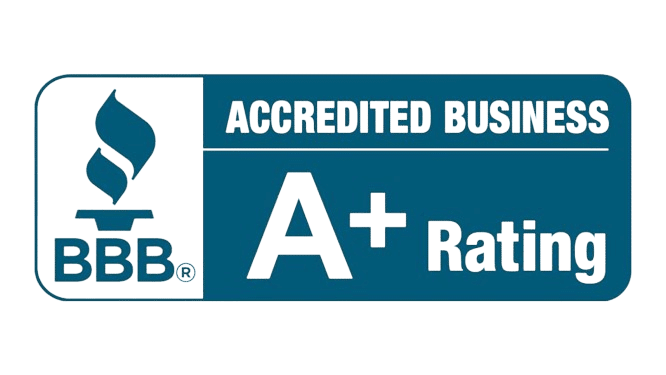Explore Credit Builder Offers
Credit builders may improve your credit by reporting on-time loan, credit card, or rent & utility bill payments to one or more of the major credit bureaus.
Secured Self Visa® Credit Card*
Disclaimers


*The secured Self Visa® Credit Card is issued by Lead Bank, Sunrise Bank, N.A., or First Century Bank, N.A., each Member FDIC.

**Qualification for the secured Self Visa® Credit Card is based on meeting eligibility requirements, including income and expense requirements and establishment of security interest. Criteria subject to change.
Disclaimers


*Credit Builder Accounts & Certificates of Deposit made/held by Lead Bank, Sunrise Banks, N.A., or First Century Bank, N.A., each Member FDIC. Subject to credit approval.

**$25/mo, 24 mos, 15.92% APR; $35/mo, 24 mos, 15.69% APR; $48/mo, 24 mos, 15.51% APR; $150/mo, 24 mos, 15.82% APR. See self.inc/pricing

Credit builder products are financial tools designed to help individuals establish or improve their credit scores. These products are particularly useful for those individuals with no credit history or poor credit scores who are looking to demonstrate responsible credit behavior to lenders. Common types of credit builder products include credit builder loans, secured credit cards, credit builder accounts, rent and utility reporting services etc.

1. Credit Builder Loans: These are designed to help individuals establish or improve their credit scores. The borrowed amount is typically held in a secured account while the borrower makes regular payments. Once the loan is fully repaid, the funds are released to the borrower. Payment activity is reported to credit bureaus, helping to build a positive credit history.
2. Secured Credit Cards: These cards require a cash deposit as collateral, which usually sets the credit limit. The user can then make purchases up to this limit and must make regular payments. Responsible use and timely payments are reported to credit bureaus, aiding in credit building.
3. Credit Builder Accounts: Offered by some financial institutions, these accounts work similarly to credit builder loans. Regular deposits or payments are required, and these activities are reported to credit bureaus to help build credit.
4. Rent Reporting Services: These services report your on-time rent payments to credit bureaus. This allows tenants to build their credit history without traditional credit products by leveraging their existing rental payments.
5. Utility and Cell Phone Payment Reporting: Some services report on-time utility and cell phone payments to credit bureaus, helping individuals build credit through regular, non-credit bill payments.

Credit builder products offer several benefits for individuals looking to establish or improve their credit scores:
1. Establishing Credit History: For individuals with no credit history, credit builder products provide a structured way to start building a positive credit history. This history is crucial for future financial endeavors, such as applying for loans or renting an apartment.
2. Improving Credit Scores: For those with poor or fair credit scores, consistent and responsible use of credit builder products can lead to gradual improvement in credit scores over time. Timely payments and low credit utilization demonstrate financial responsibility to creditors and credit bureaus.
3. Access to Better Interest Rates: A higher credit score resulting from the use of credit builder products can lead to access to better interest rates on loans, credit cards, and other financial products. This can result in significant savings over the long term.
4. Building Credit Without Debt: Unlike traditional loans or credit cards, some credit builder products, such as secured credit cards or rent reporting services, allow individuals to build credit without taking on additional debt. This can be particularly beneficial for those who are averse to borrowing.
5. Increasing Approval Odds: As credit scores improve with the use of credit builder products, individuals may find it easier to get approved for other forms of credit, such as unsecured credit cards or personal loans, expanding their financial options.

Before using credit builder products, it's important to consider several factors to ensure they align with your financial goals and circumstances:
1. Costs and Fees: Understand the costs associated with the credit builder product, including any application fees, interest rates, and other charges. Compare these costs with the potential benefits of improving your credit score.
2. Budgeting: Evaluate your budget to determine whether you can afford the payments required by the credit builder product. Ensure that you have enough income to cover these payments without compromising other financial obligations.
3. Credit Score Impact: While credit builder products are designed to improve credit scores, there's no guarantee of specific results. Understand that it may take time to see significant improvements in your credit score, and be patient throughout the process.
4. Risk of Default: Be aware of the consequences of defaulting on payments for the credit builder product. Defaulting can lead to damage to your credit score and additional fees or penalties.
5. Alternative Options: Explore alternative methods of building credit, such as becoming an authorized user on someone else's credit card, applying for a traditional credit card, or taking out a small personal loan. Compare the benefits and drawbacks of each option before making a decision.





